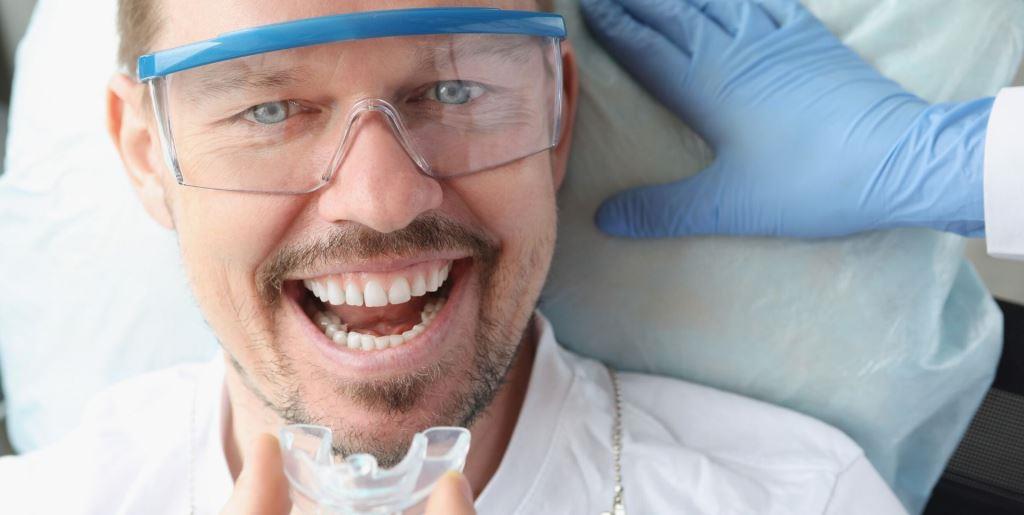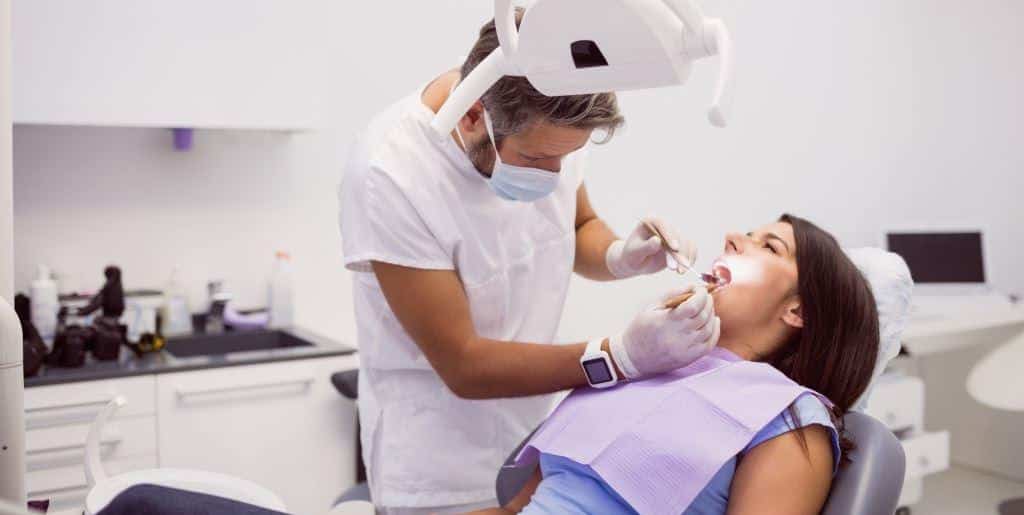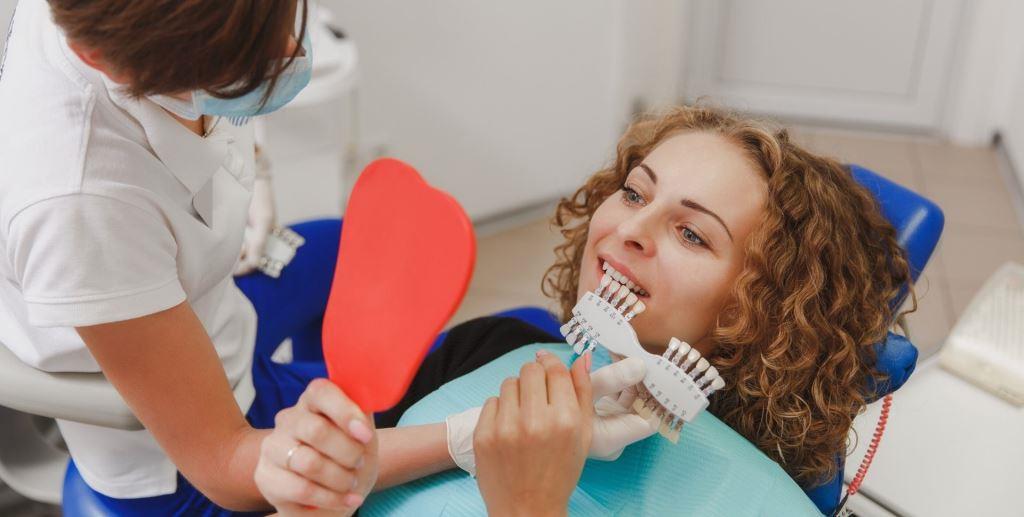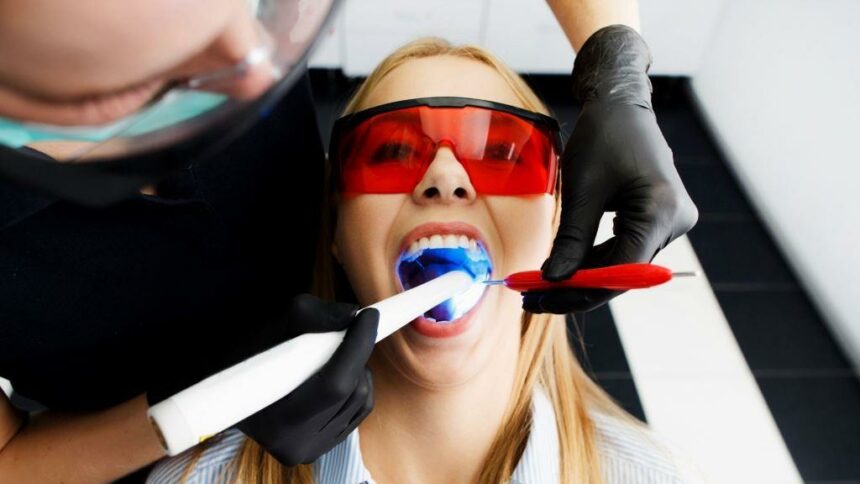Advanced untreated decay can lead to pulp death or the need for root canal treatment, resulting in a dead tooth. One of its main disadvantages is its different colour in relation to the other teeth. When the dead tooth is a one or two, the smile will lose a lot. So find out if bleaching a dead tooth in the UK is possible.
Dead tooth - what does it actually mean?
Before we move on to whether whitening a dead tooth in the UK is even possible, we take a look at the dead tooth itself. What is it and where does it come from? A dead tooth is a tooth that has no living pulp. The pulp dies if oxygen and nutrients do not reach it, for example as a result of necrosis or gangrene. One of the symptoms of this is severe throbbing pain, which you can read more about in the article "Pulsating toothache - what does it mean and how to deal with it?".
The pulp is often removed during endodontic treatmentThis is known as root canal treatment. This treatment is usually performed as a result of advanced caries. Bacteria that have entered the pulp wreak havoc there and are the cause of persistent pain. You can find out more about root canal treatment in the article "Root canal treatment under the microscope in the UK".
Each of these situations is most often the result of poor oral hygiene and a lack of regular visits to the dentist. A completely dead tooth, such as one after root canal treatment no longer hurts, but it changes its colour to a more bluish colour, so it stands out from the rest, which may make it necessary to whiten a dead tooth in the UK. So remember the golden rule that prevention is better than cure.

Dead tooth whitening in the UK - can it be done?
Fortunately, thanks to advances in cosmetic dentistry, bleaching a dead tooth in the UK is possible. However, you need to know that this can only be done in a dental surgery. None of the home remedies and methods we wrote about in the text "Home remedies for teeth whitening - pros and cons" will not work.
Gentle whitening agents are only able to whiten teeth with living pulp. Even the methods used in dental practices, such as overlay teeth whitening or the Enlighten system, cannot cope with a dead tooth. On healthy teeth, however, they work perfectly well; we wrote more about them in the text "How to have white teeth?".

Ways and costs of whitening a dead tooth in the UK
Dead tooth whitening in the UK is done in several stages and is called internal bleaching. You will first need a consultation where you will discuss the whole process with your dentist. Even if you have had root canal treatment before, your dentist will recommend an X-ray to check that it was done properly. If not, you may need to have a second treatment.
When everything is in order, the dentist will secure the surrounding The tissues and canals of the tooth against the whitening agent. He will open and prepare the tooth's chamber, then place the bleaching agent inside and protect it with a temporary filling. For the whitening of a dead tooth in the UK to be successful, it will usually need to be repeated several times every few days.
When the result becomes satisfactory, a final appointment is made to secure the tooth with a proper permanent filling. The cost of whitening a dead tooth in the UK depends largely on the number of applications of the whitening agent. One application at our practice costs £50 and a filling of a dead tooth £120 or £130, depending on the size of the tooth. Endodontic treatment, which is sometimes necessary, costs from £220 to as much as £330.
However, don't worry about the cost. If the amount of treatment exceeds £350You can spread the payment in instalments. In addition, the interest rate is 0% for the first 12 months. After that, it is 7.9%. Our system is fully secure and authorised by the Financial Conduct Authority (FCA number 619628).

Alternatives to dead tooth whitening in the UK
If you want an immediate and more long-lasting result, while also enhancing your dead tooth, you can opt for veneers instead of dead tooth whitening in the UK. Veneers are very thin layers of composite or porcelain that are bonded to the tooth. The effect is immediate and really long lasting. We wrote more about veneers in the text "Dental veneers in the UK. Everything you need to know".
Another option is dental crowns. Most similar to real teeth are the porcelain ones. Crowns will work very well especially for teeth other than one or two. You can read about porcelain crowns in the article "Porcelain crowns in the UK - everything you need to know".
If you need help choosing which dead tooth whitening method in the UK will work best for you, make an appointment in our dental practice. We will be happy to help you make a decision!

